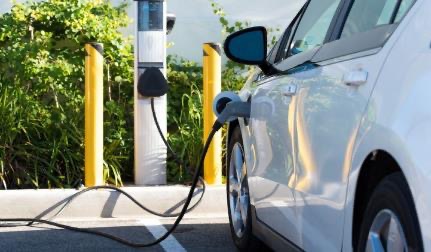Situation
We have a fleet size of 589 vehicles (currently a mixture of petrol and diesel cars). Many of our vehicles have already reached the end of their operational life. Over the PC21 period, 200 vans will be replaced with alternative fuel vehicles as part of the “Outline business case for fleet replacement”.
We anticipate that the move to ULEVs will be gradual. The PC21 period will be used as a trial period to ensure that NI Water is equipped and ready to meet the government targets for 2030 and beyond. It is likely to be a period of change, and thus the ability to react to change is key.

Action
We will install charging points at several of the 55 major hubs for fleet use only. Grid capacities and upgrade costs will require further exploration. This option supports the migration of our fleet to EVs and provides more certainty in supply. However, it is currently assumed we will not provide staff and customers with charging infrastructure.
Results
By using EVs, we could benefit financially from “Vehicle-to-grid” (V2G), a system in which plug-in electric vehicles, such as Battery-electric cars (BEVs), plug-in hybrids (PHEVs) or hydrogen Fuel Cell Electric Vehicles (FCEVs), communicate with the power grid to sell demand response services by either returning electricity to the grid or by throttling their charging rate. Consideration of second life usage of batteries and the potential revenue streams from this present an opportunity for us and our customers.
£260k of EV infrastructure for four locations has been approved, however the Supplier has indicated there are several supply chain issues being experienced across the transport sector.
This project is estimated at a total PC21 capital investment of £1.8m over the PC21 period which relates to an Opex reduction of £180k per year by the end of the period. This will save 947 tonnesCO2e compared to diesel fuelled vehicles.
We will benefit from a reduction in both cost and carbon due to the replacement of diesel fuel vehicles with electric vehicles.